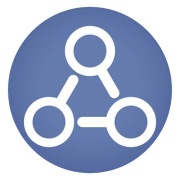At one time or another on Facebook, you posted pictures of you and your friends at parties, gave updates on what you did during your vacation every five minutes and told your Facebook friends how many loads of laundry you did. Not anymore! Facebook has become as crucial to hiring managers as job interviews.
According to HuffPost Business, 37 percent of hiring managers check job applicants’ social media networks, with over 65 percent of these employers checking Facebook. And college applicants should be wary as well, because 87 percent of college recruiters use Facebook to recruit prospective students. Here are six tips to help you utilize your Facebook to build a personal brand you can be proud of.
1. Upload a Professional Photo
The first and most important step for your brand consistency in your job search is using your professional photo in your social network. I’ve said this in every blog post in this Social Networks For Your Job Search blog series, and I’ll repeat it here: get your professional head shot now and use it on all your profiles. It makes you look professional and assures recruiters they’ve found the right person.
2. Be Thorough in Your ‘About’ Copy
Facebook Graph Search has revolutionized the job search on Facebook. If you have access to Graph Search, or if you read my recent post, you know exactly what I’m talking about. Recruiters can now search for job seekers outside of the immediate network based on pages, music, books, etc., that you like and the keywords in your profile. This means you need to be thorough in your about section. Fill in as much education and work experience as you can, being sure to load descriptions with keywords.
3. Clean Your Profile
As I mentioned in #3, Facebook Graph Search will categorize you and rank you in recruiters’ searches based on things you like, or are connected to, on Facebook. It’s time to go back to all those funny groups you joined in college, or pages that might not fit your brand, and leave or unlike them. Remember: your social networks are simply a way for you to build your brand, nothing more. If you think South Park or Kanye West are a key part of your brand, then leave them on there.
4. Adjust Your Privacy Settings.
Make sure you turn timeline review on in your Facebook privacy settings so that your friends cannot tag you in a post or photo without your approval. This prevents your (sometimes) unprofessional-minded friends from posting photos on your wall/timeline that are not brand builders, and gives you another opportunity to control exactly what hiring managers see about you.
5. Like Away
Now that you’ve cleaned your profile and are in charge of what others can see, like companies and public figures related to your industry. Employers will see how passionate and involved you are in your industry. It will also make optimize your profile and rank you higher in Graph Search.
6. Promote Yourself
Think of Facebook first and foremost as a channel to promote your personal brand. Only post content that builds that brand. Use pictures in your posts to get more views. Comment appropriately on your Facebook friends’ content. Add value to your Facebook friends by liking and sharing their content. And remember: when in doubt if content will build your brand, don’t post!
What do you think? Do you have any other tips on how to utilize Facebook to promote your personal brand? Comment below!
*This is part of my blog series on using social networks to help your job search. If you have a network you would like included in the series, please let me know by commenting below!*

